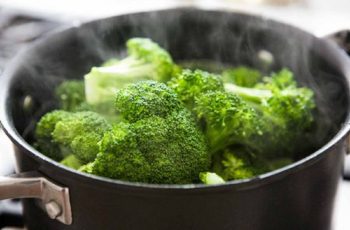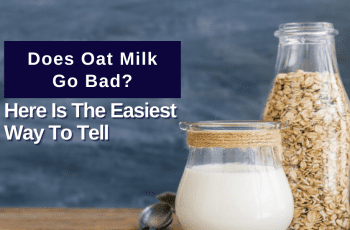Greetings, readers. Today, I want to dive into the fascinating world of crab and unveil its hidden treasure of health benefits. Whether you’re a seafood enthusiast or simply curious about the nutritional properties of this delectable crustacean, you’re in for a treat! Join me on this journey as we explore the health benefits of crab, uncover its impressive nutrition facts, and discover why it is truly good for you.
Health Benefits of Crab
- Crab is low in fat and carbohydrates, making it a healthy choice for weight management.
- It is rich in protein, omega-3 fatty acids, vitamin B12, and selenium, which offer various health benefits.
- These include improved heart health, prevention of anemia, and support for brain function.
- Crab is low in mercury compared to other seafood options.
- Its unique nutritional composition makes it a nutritious addition to any diet.
Nutritional Value of Crab
Crab is a nutrient-dense food that provides various essential nutrients. A 1-cup serving of cooked crab contains approximately 112 calories, 24 grams of protein, less than 1 gram of fat, and no carbohydrates or sugar. Crab is also a good source of vitamins and minerals, including vitamin B12, calcium, iron, zinc, and phosphorus. It is particularly rich in omega-3 fatty acids, which are beneficial for heart health. The protein content in crab helps in building and maintaining muscle mass. Overall, crab is a highly nutritious food that contributes to a balanced diet.
Key Nutritional Values of Crab:
- Calories: 112 per 1-cup serving
- Protein: 24 grams per 1-cup serving
- Fat: Less than 1 gram per 1-cup serving
- Carbohydrates: None
- Sugar: None
- Vitamin B12: Essential for nerve function and red blood cell production
- Calcium: Important for bone health
- Iron: Needed for oxygen transportation in the body
- Zinc: Supports immune function and wound healing
- Phosphorus: Essential for bone and teeth health
With its low calorie and carbohydrate content, crab is a great option for those looking to manage their weight. It provides a good amount of protein, which aids in building and repairing muscles. Additionally, the omega-3 fatty acids found in crab help reduce inflammation and support heart health. Including crab in your diet can offer a wide range of nutritional benefits and contribute to a well-balanced eating plan.
Health Benefits of Crab
Crab offers a range of health benefits due to its unique nutritional composition. The omega-3 fatty acids present in crab have a positive effect on cholesterol levels, helping to lower triglyceride levels and reduce the risk of cardiovascular diseases. These essential fatty acids also promote heart health by increasing HDL (good) cholesterol and reducing LDL (bad) cholesterol.
The potassium content in crab plays a role in regulating blood pressure and promoting cardiovascular health. Potassium helps maintain fluid balance and supports proper muscle function, including the heart muscle. By incorporating crab into your diet, you can naturally improve your blood pressure levels.
Furthermore, crab’s high omega-3 fatty acid content extends its benefits to brain health. Research suggests that omega-3 fatty acids can help reduce the risk of dementia and Alzheimer’s disease. These essential fats play a vital role in brain development and function, improving cognitive performance and supporting overall brain health.
In addition to its effect on cholesterol levels, blood pressure, and brain health, crab is also beneficial for heart health and weight management. With its low calorie and high protein content, crab helps increase satiety and reduce overeating. The high-quality protein found in crab supports muscle growth and repair, while minimizing fat storage.

In conclusion, including crab in your diet can provide numerous health benefits. It can positively impact cholesterol levels, blood pressure, and brain function, while also supporting heart health and weight management. With its delicious taste and nutritional value, crab is a valuable addition to any balanced diet.
Crab Benefits for Skin and Hair
The nutrients in crab offer numerous benefits for both skin and hair health. Including crab in your diet can contribute to overall skin and hair wellness, thanks to its rich content of omega-3 fatty acids, vitamin B12, and zinc.

Omega-3 fatty acids play a vital role in maintaining healthy skin. These essential fatty acids help reduce inflammation, promote skin elasticity, and alleviate symptoms of skin conditions, such as eczema and psoriasis.
Vitamin B12 is crucial for the production of hair cells. By including crab in your diet, you can promote hair growth and prevent hair loss, ensuring strong and healthy locks.
Zinc is essential for maintaining the health of both the scalp and hair follicles. Consuming crab helps prevent conditions like dryness and dandruff, keeping your hair and scalp in optimal condition.
Incorporating crab into your meals is a delicious way to boost both skin and hair health. By leveraging the benefits of omega-3 fatty acids, vitamin B12, and zinc, you can enjoy the aesthetic advantages that crab has to offer.
Crab Benefits for Weight Loss
Achieving weight loss goals can be challenging, but incorporating crab into your diet can be a valuable aid in your journey. Not only is crab low in calories and fat, but it also offers a range of nutritional benefits that support weight management and overall body health.
- Low in calories and fat: Crab is a low-impact addition to a weight loss diet as it is naturally low in calories and fat. This means you can enjoy its delicious taste without worrying about consuming excessive calories.
- High in protein: Protein plays a crucial role in weight management by increasing satiety and reducing hunger cravings. Crab is a great source of protein, making it a satisfying addition to your meals and snacks.
- Low in carbohydrates: For those following low-carb or ketogenic diets, crab is an excellent choice. Its low carbohydrate content allows you to enjoy a flavorful seafood option while keeping your carbohydrate intake in check.
- Rich in omega-3 fatty acids: Omega-3 fatty acids offer numerous health benefits, including supporting weight loss. These essential fats can reduce inflammation, improve insulin sensitivity, and enhance fat metabolism. By including crab in your diet, you can increase your omega-3 fatty acid intake and promote better weight management.
Furthermore, crab is not only beneficial for weight loss but also for overall body health. Its combination of protein, omega-3 fatty acids, and other nutrients supports various bodily functions and development. So, when you choose crab as part of your weight loss regimen, you’re not only shedding pounds but also nourishing your body.
Now that you know the crab benefits for weight loss, it’s time to savor this delightful seafood in your meals. Whether you choose crab meat, legs, or other crab-based dishes, you can enjoy their flavors while reaping the numerous health benefits they provide.
Conclusion
Crab is a true powerhouse when it comes to nutrition and health benefits. Packed with protein, vitamins, and minerals, such as omega-3 fatty acids, vitamin B12, and selenium, crab offers a range of advantages for our well-being.
One of the key benefits of including crab in your diet is its positive impact on heart health. The omega-3 fatty acids found in crab help lower triglyceride levels and improve cholesterol ratios, supporting a healthy heart.
In addition to heart health, crab also plays a role in brain function. The omega-3 fatty acids found in crab have been linked to better cognitive health and a reduced risk of dementia and Alzheimer’s disease.
Furthermore, crab contains essential vitamins and minerals, contributing to various aspects of our health. Vitamin B12 is important for energy production and nerve function, while selenium is an antioxidant that helps protect against cell damage. These nutrients work in synergy to support overall well-being.
So, whether you’re enjoying a delicious crab meat dish or savoring crab legs, incorporating crab into your diet can provide you with a wide array of health benefits. From its vitamins and minerals to its omega-3 fatty acids and cholesterol benefits, crab is a nutritious seafood choice that promotes a strong and healthy body.
FAQ
What are the health benefits of crab?
Crab offers various health benefits due to its nutritional composition. It is low in fat and carbohydrates, making it a healthy choice for weight watchers. Crab is also rich in protein, omega-3 fatty acids, vitamin B12, and selenium, which provide numerous advantages such as improved heart health, prevention of anemia, and support for brain function.
What is the nutritional value of crab?
Crab is a nutrient-dense food that contains approximately 112 calories, 24 grams of protein, less than 1 gram of fat, and no carbohydrates or sugar in a 1-cup serving of cooked crab. It is also a good source of vitamins and minerals, including vitamin B12, calcium, iron, zinc, and phosphorus. Crab is particularly rich in omega-3 fatty acids, which are beneficial for heart health.
How does crab impact cholesterol levels and blood pressure?
Crab can contribute to improved cholesterol levels by increasing HDL (good) cholesterol and reducing LDL (bad) cholesterol. Its potassium content can also help regulate blood pressure and promote cardiovascular health.
What is crab’s role in brain health?
The omega-3 fatty acids present in crab support brain health and may reduce the risk of dementia and Alzheimer’s disease.
How does crab benefit heart health?
The omega-3 fatty acids in crab can help lower triglyceride levels and reduce the risk of cardiovascular diseases. Crab’s impact on cholesterol levels by increasing HDL (good) cholesterol and reducing LDL (bad) cholesterol also contributes to heart health.
Does crab have any benefits for weight management?
Crab is a low-calorie and low-fat food that is high in protein. Its high protein content helps in increasing satiety and reducing hunger cravings, making it a suitable food for weight management. The combination of protein, omega-3 fatty acids, and other nutrients in crab supports overall body health and development.
How does crab benefit the skin and hair?
The omega-3 fatty acids in crab help in maintaining healthy skin by reducing inflammation and promoting skin elasticity. Crab is also a good source of vitamin B12 and zinc, which contribute to hair health by promoting hair growth and maintaining the health of the scalp and hair follicles.
Is crab beneficial for weight loss?
Yes, crab is low in calories and fat, making it a suitable addition to a weight loss diet. Its high protein content helps in increasing satiety and reducing hunger cravings, which can aid in weight management. Crab’s low carbohydrate content also makes it suitable for those following low-carb or ketogenic diets.
What are the vitamins and minerals found in crab?
Crab is a good source of vitamins and minerals, including vitamin B12, calcium, iron, zinc, and phosphorus. It is particularly rich in omega-3 fatty acids, which are beneficial for heart health.
Does crab contain omega-3 fatty acids?
Yes, crab is rich in omega-3 fatty acids, which offer various health benefits such as improving heart health and supporting brain function.
Does crab have cholesterol benefits?
The omega-3 fatty acids and other nutrients in crab can contribute to improved cholesterol levels by increasing HDL (good) cholesterol and reducing LDL (bad) cholesterol. Including crab in your diet can help support heart health.




